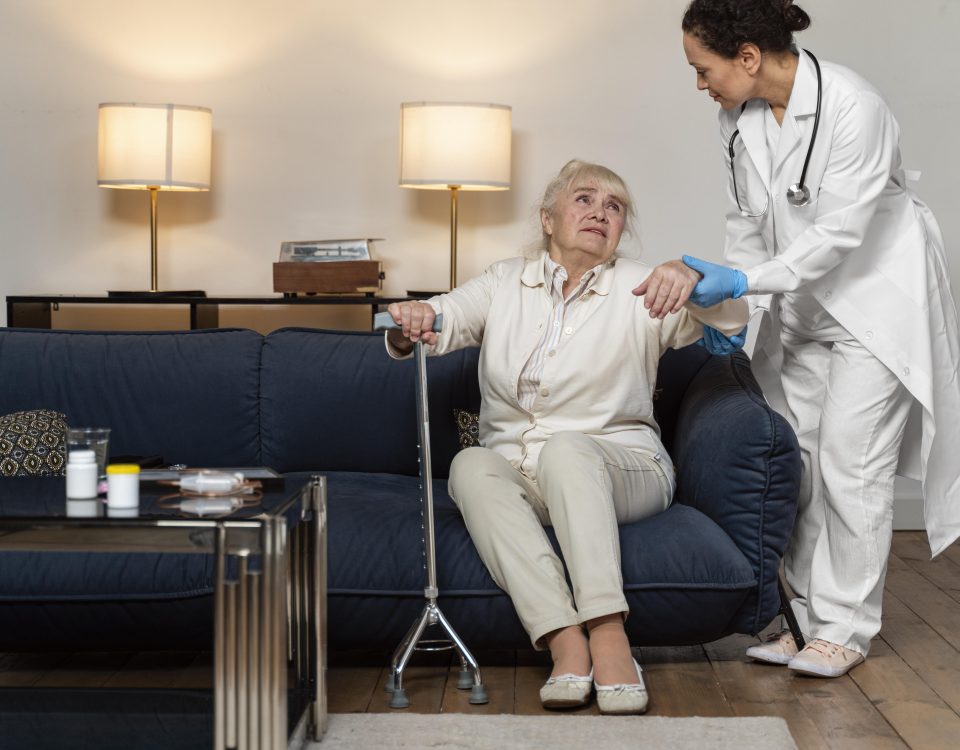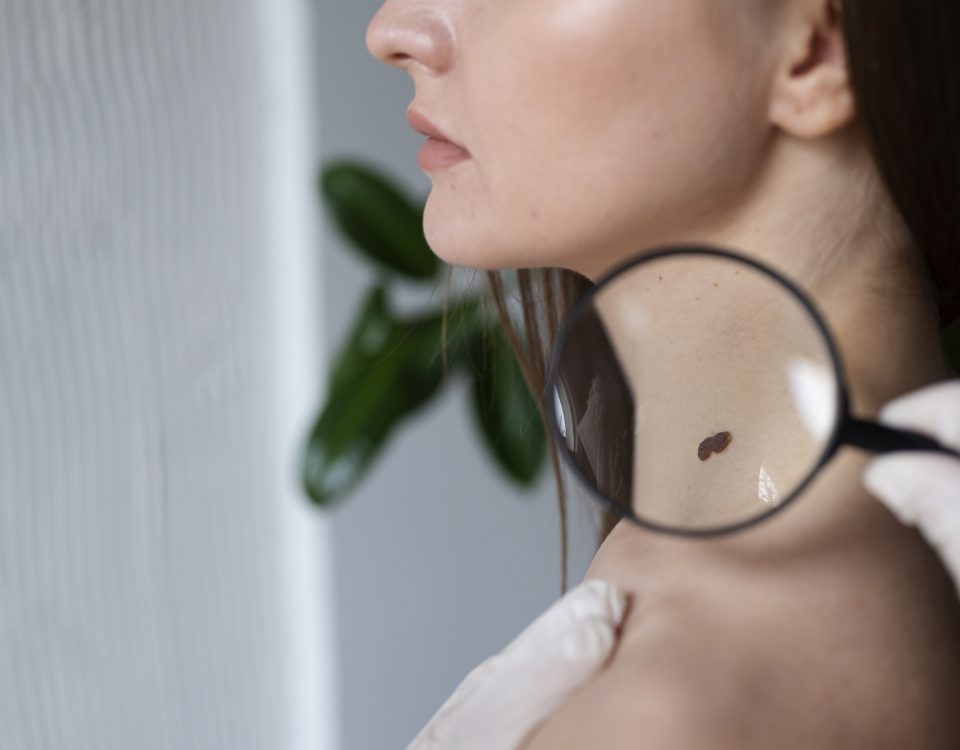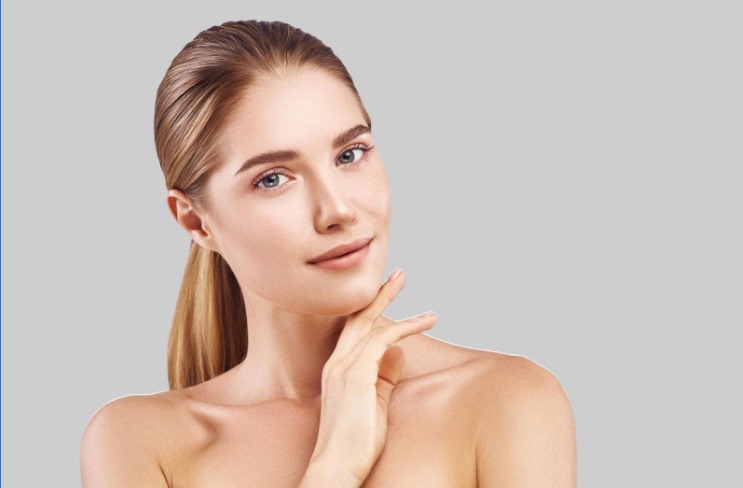
Aftercare for Laser Hair Removal
19 March 2025
What Is Cellulitis?
5 April 2025What Is Eczema?
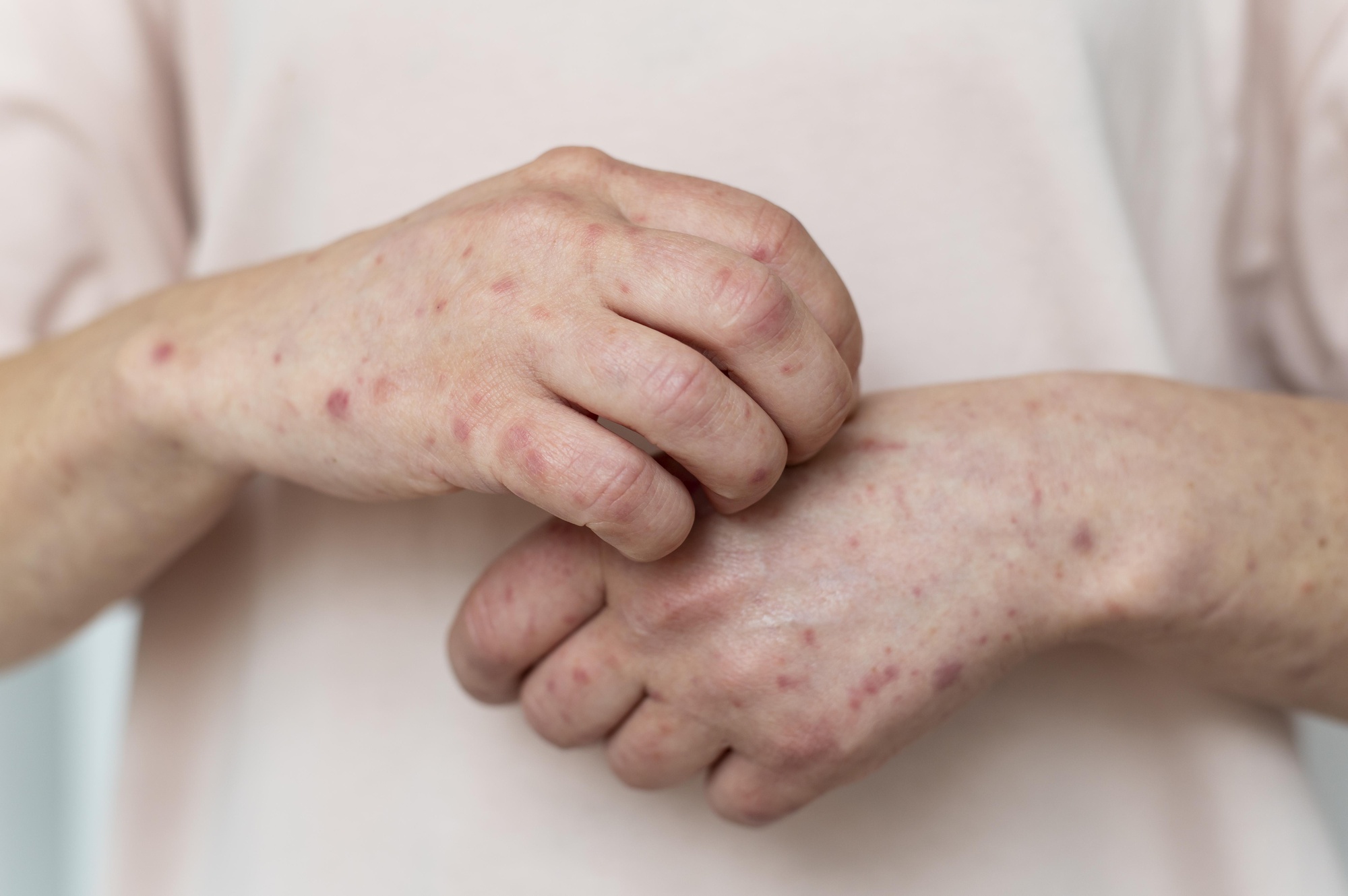
Eczema or atopic dermatitis is basically a chronic dermatosis affecting several millions of lives worldwide. Some of the cardinal features of atopic dermatitis include inflammation of the skin surface, redness, dryness, itching irritation, and at times, significant discomfort and distress. The general condition can hit anyone at almost any age and is most recurrent in infants, and young ones. Though non-treatable, eczema can take a toll on an individual's quality of life, causing undue discomfort and keeping them awake sometimes.
Eczema is a multifactorial illness whose causes differ from one individual to another. Its causes, symptoms, and treatment provide effective solutions in managing flare-ups.
For more specific information and expert treatments, contact Bergen Premier Aesthetics.
Causes of Eczema
Eczema results from genetic and environmental causes. Some of the main causes are as follows:
- Genetic predisposition: People who have a history of eczema, asthma, or hay fever in the family are prone to developing it.
- Immune system dysfunction: Overactive immunity can cause skin inflammation and make the skin very sensitive.
- Environmental triggers: Allergens, pollution, smoke, and weather conditions can easily trigger the flare-up of symptoms.
- Irritants: Soaps, detergents, perfumes, and specific fabrics like wool and synthetic material can trigger the flare-up of eczema.
- Food allergies: For some, dairy, nuts, eggs, and gluten may contribute to eczema.
- Stress and anxiety: Psychological stress weakens the immune system, making symptoms worsen.
Kinds of Eczema
There are a number of eczema, and each kind has its peculiar features:
Atopic Dermatitis: The most common type. This is a common allergy associated with asthma.
Contact Dermatitis: This happens due to the direct contact with irritants or allergens.
Dyshidrotic Eczema: This usually leads to blistering on the hands and feet.
Nummular Eczema: It appears as round, coin-shaped patches on the skin.
Seborrheic Dermatitis: Affects oil-rich areas, like the scalp and the face.
Stasis Dermatitis: This develops more typically in patients with poor circulation and is found mainly on the lower legs.
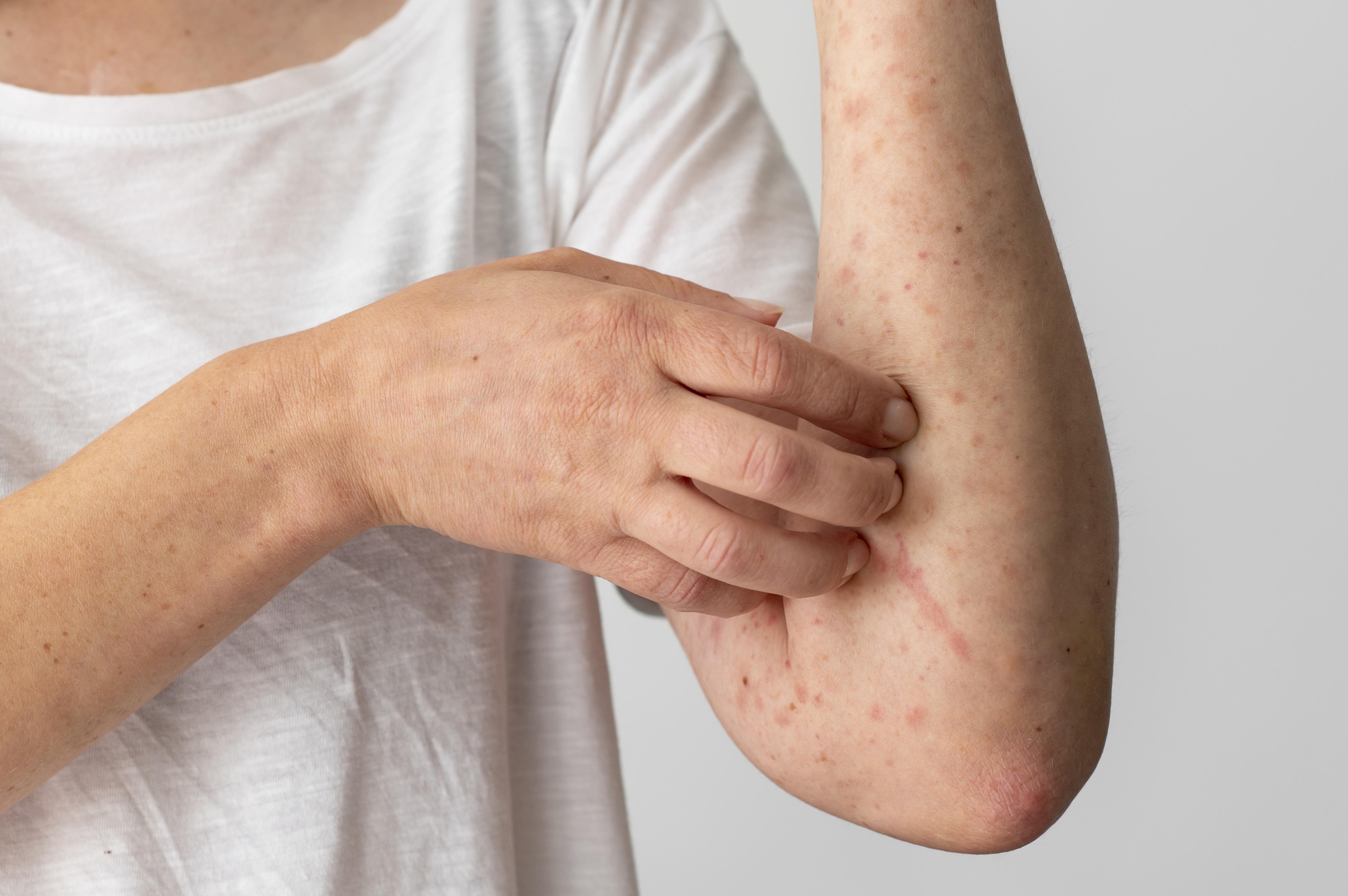
Eczema Symptoms
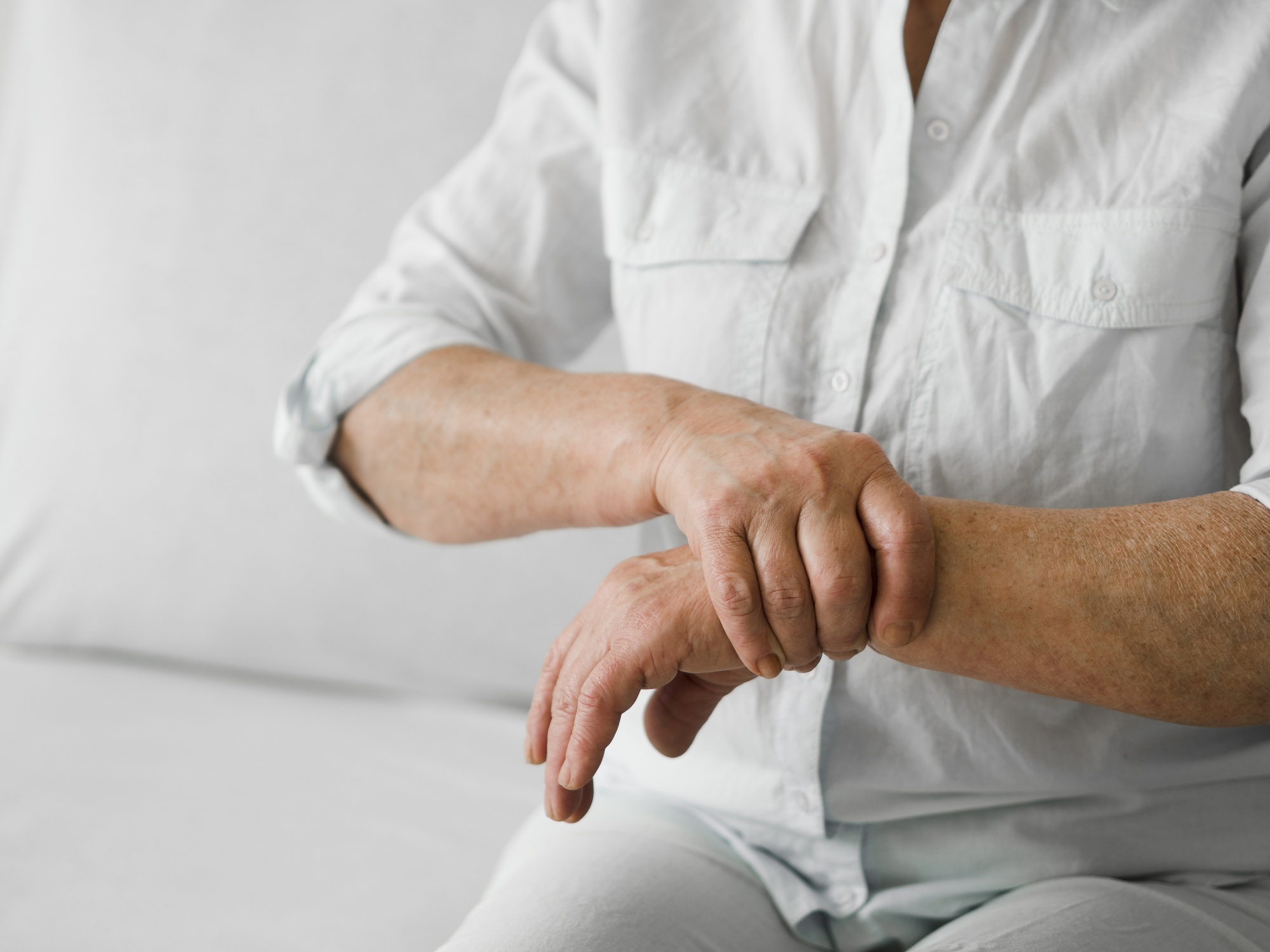
Eczema symptoms are quite diversified depending on the severity and type but generally include:
- Itching persistently. Most times, it is worse at night
- Dryness, scaling, and thickening of the skin: Eczema can lead to rough skin. Dermaplaning can help smoothen the skin and remove dead cells, improving its texture.
- Redness, inflammation
- Fluid-filled blisters or being oozing lesions
- Cracking and peeling of the skin
- Dark patches, especially in darker skin tones: Eczema flare-ups can lead to dark patches. For this, Laser Genesis treatment may help in improving the skin tone and texture. Symptoms usually flare periodically and fade for some time before resurfacing again.
Eczema Diagnosis
Eczema diagnosis requires the following steps
- Physical examination by the dermatologist
- Medical history check with the help of which the genetic factors and environmental irritants can be determined.
- Patch test for allergic contact dermatitis
- Blood tests for the exclusion of other skin diseases
Treatments That Work For Eczema
Though there isn't a permanent cure for eczema, several treatments help control and lessen the symptoms
Skincare Routine
- Use fragrance-free moisturizers frequently to maintain hydration.
- Use thick emollients like petroleum jelly.
- Take cool showers instead of hot ones.
- Use mild, hypoallergenic cleansers.
Medications
- Topical corticosteroids: reduce inflammation and itching
- Calcineurin inhibitors: assist in the suppression of the immune response
- Antihistamines: reduce itching and promote sleep
- Oral corticosteroids: are only used in more severe cases with a doctor's prescription
- Biologic therapies: for immune system suppression in very severe eczema
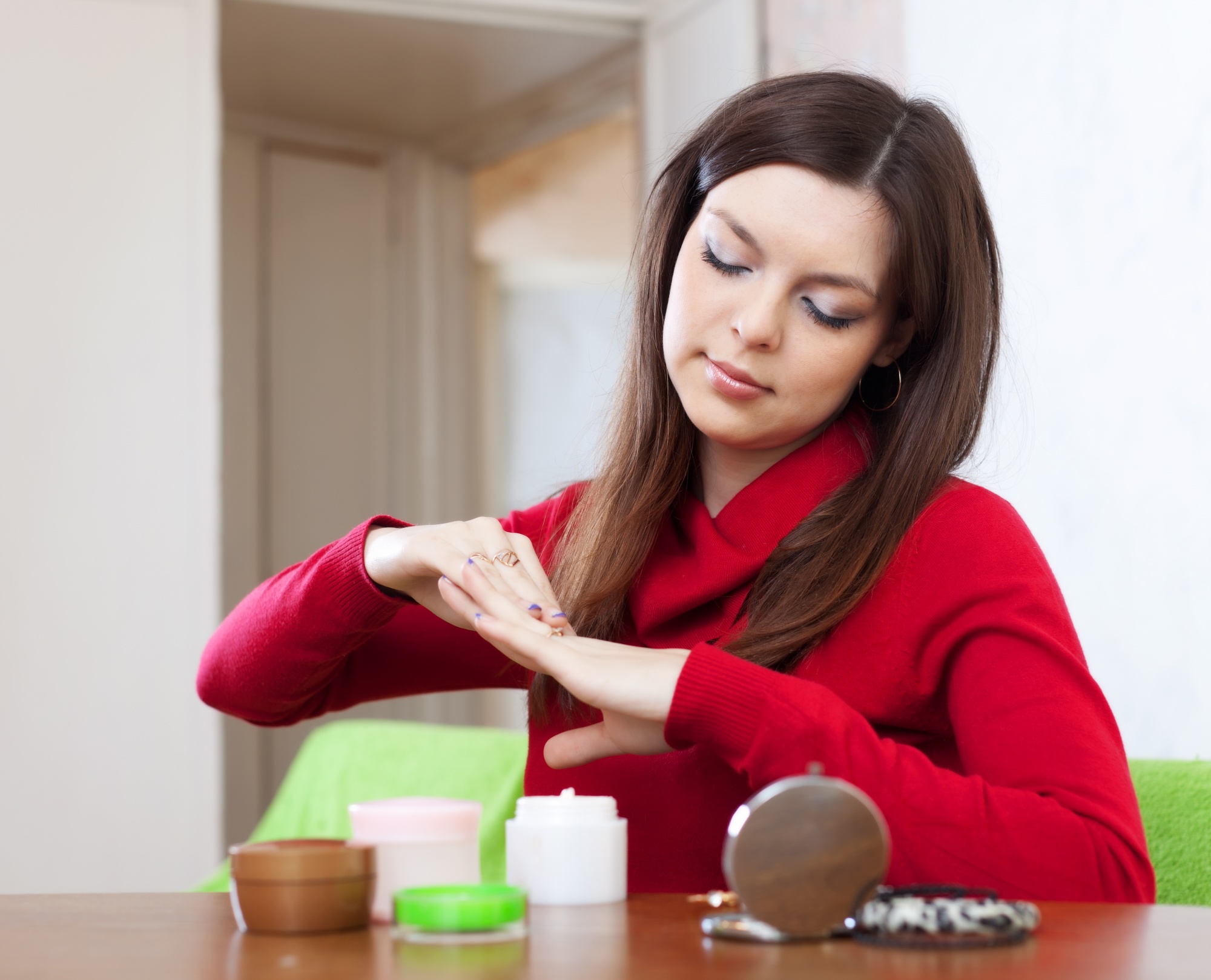
Lifestyle Changes
- Find out and avoid your personal triggers.
- Wear loose, airy clothing.
- Maintain the right humidity indoors.
- Reduce stress through meditation and relaxation.
Natural and Home Remedies
- Coconut oil: This is a natural moisturizer that has antibacterial properties.
- Aloe vera gel: It soothes inflammation and hydrates the skin.
- Oatmeal baths: These are helpful in reducing itching and irritation.
- Essential oils (tea tree, chamomile): These have anti-inflammatory effects
Eczema Prevention Tips

Preventing eczema flare-ups requires regular skincare and healthy habits:
- Moisturize daily to keep the skin hydrated.
- Use a humidifier in dry climates.
- Wear soft, breathable fabrics like cotton.
- Avoid excessive heat and sweating.
- Minimize exposure to allergens and irritants.
FAQs
Conclusion
Eczema is a chronic skin disease that needs to be managed so as to prevent discomfort and flare-ups. In order to have control over one's symptoms, one needs to identify the trigger, maintain a regular skincare routine, and administer the appropriate treatment. For the best advice and advanced treatment options, visit Bergen Premier Aesthetics.
The individual with eczema will be able to lead a healthier and more comfortable life if one stays informed and proactive about his or her situation.


